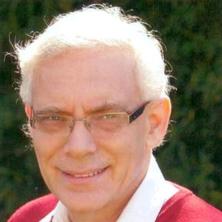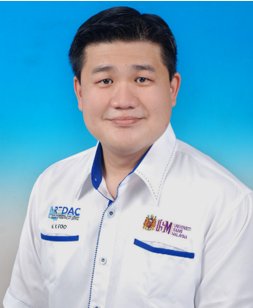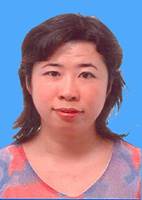
Speakers
| Prof. Richard HaynesThe University of Queensland, Australia Research Areas: Rehabilitation and revegetation of mine spoils, Use of constructed wetlands to treat drainage from mine spoils Brief Introduction: Professor Haynes works in the areas of soil and environmental science. His present research interests are on rehabilitation and revegetation of mine tailings, the use of constructed wetlands to treat drainage from tailings storage areas and the role of silicon in crop production. He has extensive experience having worked as both an applied research scientist and as a university professor and has worked in New Zealand, South Africa and Australia. He has publishedover 190 original research papers in international journals, over 25 review papers in international volumes as well as many conference and extension papers and contract reports. He has been an invited keynote speaker at many international conferences and has served on the editorial board of 4 international research journals. He has acted as principal supervisor and co-supervisor of PhD, MSc and honours students in both South Africa and Australia. Professor Haynes has carried out research in commercial horticultural, pastoral, arable and forestry production as well as in small-holder semi subsistence agriculture. He has also worked on bioremediation of soils contaminated with organic pollutants, rehabilitation of mined sites, application of organic and inorganic wastes to soils and the effects of heavy metal contaminants on soil processes. His research has been mainly in the areas of applied soil chemistry and soil microbiology/biology with links to soil physical properties and to pollution of air and water. He has specialised in working on applied problems and maintains strong links with industry. Major areas of research have included the role of grazing animals in the fertility of pastoral soils, N cycling and gaseous and leaching losses from arable and pastoral systems, soil quality and soil degradation under agricultural land use, effects of soil contaminants on soil processes, rehabilitation and remediation of contaminated, degraded and mined sites and use of wastes as soil amendments. |
| Prof. Foo Keng YuenUniversiti Sains Malaysia, MalaysiaBrief Introduction: Prof. Dr. Foo Keng Yuen is the UNESCO Co-Chair on Ecohydraulics for Sustainable Water Infrastructures for SDG 6 in Asia and the Pacific Region. His research interests are environmental engineering, waste utilization, water treatment technology, catalysis, food security and toxicology, and environmental health. He has involved in different kinds of university, national and international research grants, amounting to approximately RM 10 million. His aptitude for high quality research of international standing has been supported by the consultancy projects of exceeding RM 3 million, more than 100 international publications, with a total citation of exceeding 18,000, and an author h-index of 51. In term of Intellectual Properties, he holds 3 patents, 1 trade-secret and 1 trademark. Foo’s scholastic achievements and thought leadership are recognised locally and internationally. He is honoured to be the Top 2% Scientists in their Respective Fields and Top 2% Highly Cited Scientists in the world by the Stanford University, California consequentially for 5 years. Foo has been nominated to be the honouree of the Ten Outstanding Young Malaysians (ToYM) 2022, Top Research Scientist Malaysia (TRSM) 2019, National Young Scientist Award 2017, International Young Inventor Award, Marquis Who's Who in the World, Top 100 Engineers, and Honorary Doctorate of Letters by International Biographical Centre Cambridge, England, and special award or medal winners in International Inventions, Competitions and Exhibitions. He serves as the Editor, Editorial Board Members, Scientific Adviser, Technical Committee, Review Committee, Keynote and Invited Speakers in international scientific journals, conferences, and research seminars. Foo has been nominated as the Chief Consultant for several UNESCO’s international workshops, connecting with more than 30 industrial partners. He has been appointed as the technical consultant for TG Ocean Health Food Industries Limited Company and research and development (R&D) consultant for Gold Choice Food Industries Limited Company. |
Prof. Yanling ZhangTianjin University of Finance and Economics, China Research Areas: Exhibition management, tourism culture, health tourism, tourism economy, resources and environment management. Brief Introduction: She is a doctor of management, professor and master tutor of the Technical University of Freiberg in Germany, and currently the deputy Director of the Tourism Department of the Business School of Tianjin University of Finance and Economics. Editor-in-chief of the Proceedings of the Eurasian Conference on Corporate Social Responsibility and Environmental Management (ISTP/ISSHP Search); Managing Editor of Journal of Environmental Governance and Corporate Social Responsibility (ISSN 2194-3559); Member of the G200 Alliance Committee; Assistant Director of Culture and Tourism Bureau, Heping District, Tianjin (temporary post); Member of Expert Committee of Tourism Think Tank, Hanzhong City, Shaanxi Province; Member of Tianjin Jizhou Homestay Association; Journal of China Tourism Research; Journal of Quality Assurance in Hospitality & Tourism; Current Issues in Tourism; The Service Industries Journal; Reviewer for Total Quality Management & Business Excellence. He has presided over and participated in a number of domestic and foreign tourism management and cultural heritage tourism topics, published ten monographs (Chinese and English) in related aspects, and published 52 papers in domestic and foreign core journals. |
|


